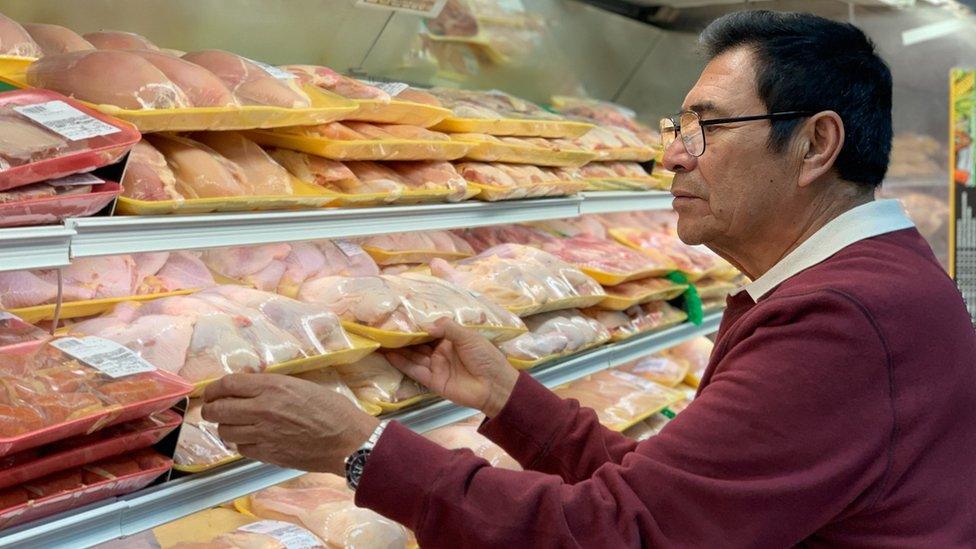Food firms warn of product shortages if CO2 deal not agreed
- Published

Food and drink firms have raised fears over shortages as a deal that secured vital carbon dioxide (CO2) supplies is about to end without an extension.
CO2 is used for keeping packaged food fresh, to stun pigs and chickens before slaughter and in fizzy drinks.
A supply chain crisis was averted last year when the government stepped in to broker a three-month price-fixing deal between CO2 producers and industry.
The food industry said a new deal had to be reached before 31 January.
"We are concerned with just days now remaining before that agreement comes to an end, and energy prices still very high, there will be further CO2 shortages once again," said industry body the Food and Drink Federation (FDF).
"This could lead to shortages in the products we find on our supermarket shelves - adding further pressures to families already coping with high food-price inflation."
However, it would appear that the government is unlikely to put up more money to secure supplies, saying it is up to CO2 firms to ensure continued supplies.
CO2 is essential across industry and in the National Health Service.
One US fertiliser firm, CF Industries, makes 60% of the UK's commercial carbon dioxide as a by-product of producing ammonia for fertiliser.
Last year, it temporarily shut its facilities after fertiliser manufacturing became uneconomic because of the rising price of wholesale gas, cutting off a vital source of CO2 for other sectors.
Supermarkets began reporting limited stocks of some food items, while the pig industry warned that if slaughterhouses could not process animals, then farmers would have to cull their stocks.
The government intervened to persuade CF Industries to continue supplies of the gas until the end of January.
CF Industries said it "continues to negotiate with our industrial gas customers to extend CO2 off-take and pricing agreements".
Related topics
- Published11 October 2021